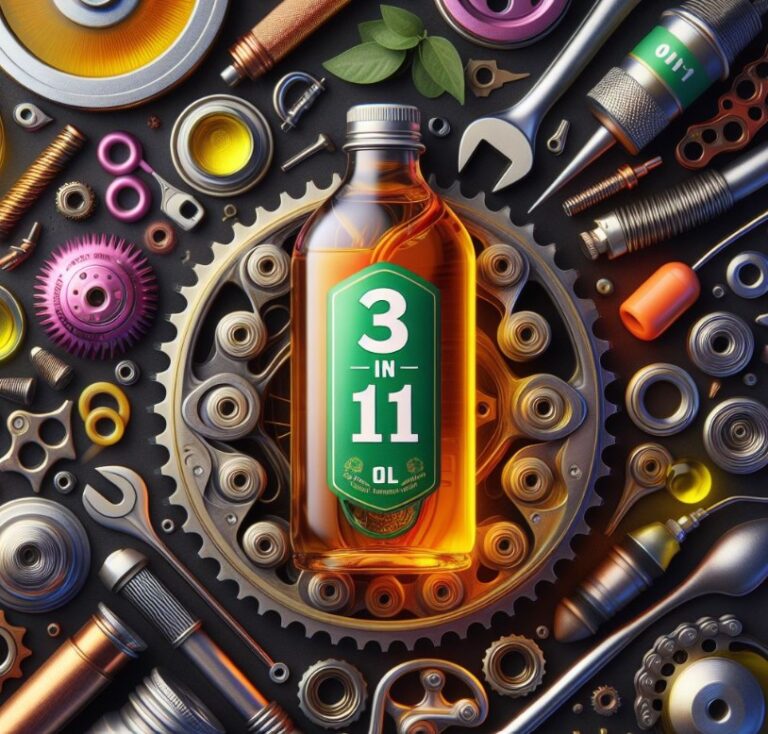Can I Trade In A Financed Motorcycle? Answered
This article will explain Can I Trade In A Financed Motorcycle? Exploring the option to trade in a financed motorcycle is a common consideration for many riders seeking a new ride. This process involves evaluating your motorcycle’s equity, understanding the balance of your existing loan, and navigating the terms of a new purchase. It’s essential to approach this decision with a clear understanding of your financial situation and the value of your motorcycle to ensure a smooth and beneficial transaction.
Key Takeaways
- You can indeed trade in a financed motorcycle.
- The remaining loan balance can be transferred to the new loan.
- Assess the bike’s value versus the outstanding loan for a clear picture.
- Always communicate transparently with the lender and dealership.
Can I Trade In A Financed Motorcycle?
Yes, you can trade in a financed motorcycle. The process entails evaluating the bike’s trade-in value against the remaining loan balance and managing any equity accordingly.

Understanding the Trade-In Process
Trading in a financed motorcycle involves evaluating the vehicle’s worth against the outstanding loan balance. If the motorcycle’s value exceeds the remaining loan amount, you’re in a favorable position.
This positive equity can contribute towards the down payment of your next vehicle. Conversely, if the bike is worth less than what you owe, this is termed negative equity, and it complicates the trade-in process.
The dealership plays a crucial role in this scenario. They will appraise your motorcycle and offer a trade-in value. If this value covers your loan, the dealership will handle the payoff to your lender, and you can proceed to select your new ride.
The complexity arises when the trade-in value does not cover the existing loan, leading to negative equity. This amount can often be rolled into the new financing agreement, but it requires careful consideration as it increases the new loan amount and potentially the interest paid.
Assessing Your Motorcycle’s Value
Before visiting the dealership, it’s wise to have a clear understanding of your motorcycle’s current market value. Websites like Kelley Blue Book or NADA Guides provide realistic valuations based on your motorcycle’s condition, mileage, and model. Comparing these figures with the remaining balance on your loan will prepare you for negotiations and financial decisions at the dealership.
It’s also beneficial to get multiple trade-in quotes from different dealerships or consider private sale options. A private sale might fetch a higher price than a trade-in, reducing any potential negative equity. However, a private sale requires more effort and time compared to trading in at a dealership.
Handling Negative Equity
Negative equity is a common hurdle in the trade-in process. If your motorcycle is worth less than the outstanding loan, consider whether you can cover the difference out of pocket.
If not, rolling the negative equity into a new loan is a possibility, though not always advisable. This increases your new loan amount and may lead to higher interest costs over time.
Carefully evaluate the terms of the new loan to ensure they are manageable within your budget. Consider shorter loan terms to offset the impact of negative equity and reduce total interest payments. Consult with financial advisors or use online calculators to understand the long-term implications of rolling over negative equity.
Financing the Next Motorcycle
When trading in a financed motorcycle, it’s vital to secure favorable financing terms for the new loan. Interest rates and loan terms vary widely, so shop around for the best deals. Check your credit score beforehand, as it significantly affects your loan terms and interest rates.
Discuss different financing options with the dealership and consider pre-approved loans from banks or credit unions. Comparing these offers can lead to better negotiation power and potentially lower interest rates.
Can I Sell My Motorcycle If I Still Owe Money On It?
Yes, you can sell a motorcycle even if you still owe money on it, but the process requires careful coordination. Firstly, you need to find out the exact payoff amount from your lender, which represents the total you must pay to clear the remaining loan balance.
When you find a buyer, you must use the proceeds from the sale to pay off this loan. If the sale price exceeds the payoff amount, you can keep the difference. If it does not cover the loan, you will need to pay the shortfall.

The transaction can be more seamless if the buyer agrees to pay the loan directly to the lender, with any excess funds given to you; this ensures transparency and trust in the transaction. However, many buyers might be wary of this approach.
An alternative is to close the deal at the bank or financial institution that holds your loan, allowing for immediate transfer of funds and title.
Remember, you cannot legally transfer the title to the new owner until the loan is fully paid off and the lender releases the lien. Therefore, clear communication with the buyer and the lender is crucial throughout this process.
How Does Trading A Motorcycle Work?
Trading in a motorcycle is a straightforward process that involves exchanging your current bike for credit towards the purchase of a new or used motorcycle from a dealership.
When you bring your motorcycle to a dealership for a trade-in, they will appraise its value based on factors like market demand, the bike’s condition, mileage, and service history.

The appraised value is then used as a credit against the price of the motorcycle you wish to purchase. If your motorcycle’s value exceeds the price of the new bike, you may get the difference back or use it towards accessories or warranties.
If your bike is worth less than the new motorcycle’s price, you will need to pay the difference, either upfront or by financing it.
In cases where you still owe money on your motorcycle, the dealership will typically pay off the loan as part of the trade-in process. However, similar to selling a motorcycle, if the trade-in value does not cover the outstanding loan, you will be responsible for paying the difference.
Is It Better To Trade In Or Sell Motorcycle?
Deciding whether to trade in or sell your motorcycle depends on your priorities and circumstances. Selling your motorcycle privately typically results in a higher sale price compared to a trade-in offer.
A private sale allows you to set your price and negotiate directly with buyers. However, this method can be time-consuming and requires effort for advertising, meeting potential buyers, and handling paperwork.
On the other hand, trading your motorcycle to a dealership is less time-consuming and provides a straightforward process. You avoid the hassle of private sale preparations and negotiations.
The trade-in value can be immediately applied toward the purchase of a new or used motorcycle. However, trade-in offers are generally lower than the market value you could receive from a private sale because the dealership needs to make a profit when they resell the bike.
Conclusion
Trading in a financed motorcycle is indeed possible and can be a practical option for riders looking to upgrade or change their current bike. However, it requires careful assessment of the motorcycle’s value, a clear understanding of the outstanding loan, and consideration of the financial implications. By effectively managing these aspects, you can navigate the trade-in process successfully and transition to your new motorcycle with confidence and ease.
Top FAQ’s
Can I negotiate the trade-in value of my financed motorcycle?
Yes, you can and should negotiate the trade-in value of your financed motorcycle. Research its market value beforehand and get multiple quotes to understand its worth better. Be prepared to discuss its features, maintenance history, and condition during negotiations. Remember, the first offer is not always the final one, so be ready to counteroffer or walk away if necessary.
How do I prepare my motorcycle for trade-in?
Preparing your motorcycle for trade-in can increase its value. Clean the bike thoroughly, perform basic maintenance, fix minor issues, and gather all related documents and accessories. Presenting your motorcycle in the best possible condition can positively influence the dealership’s appraisal.
What documents do I need to trade in my financed motorcycle?
To trade in your financed motorcycle, you’ll typically need the following documents: your loan account information, the motorcycle’s title (if in your possession), registration, proof of insurance, and all sets of keys. If the title is held by the lender, the dealership will arrange the transfer as part of the trade-in process.
How does trading in a motorcycle work if I’m still making payments?
If you’re still making payments on your motorcycle, you can trade it in by having the dealership assess its value and apply that amount toward your existing loan. If the trade-in value is higher than what you owe, the surplus will go towards your new purchase. If it’s lower, you’ll need to address the remaining balance as described previously.

Welcome to the exhilarating world of Matt Rex, a professional car racer turned renowned vehicle enthusiast. Immerse yourself in his captivating blog as he shares heart-pounding adventures, expert reviews, and valuable insights on cars, trucks, jets, and more. Fuel your passion for speed and discover the beauty of vehicles through Matt’s engaging stories and meticulous expertise. Join the ever-growing community of enthusiasts who find inspiration and expert advice in Matt Rex’s blog—a digital hub where the thrill of speed meets the pursuit of knowledge.






